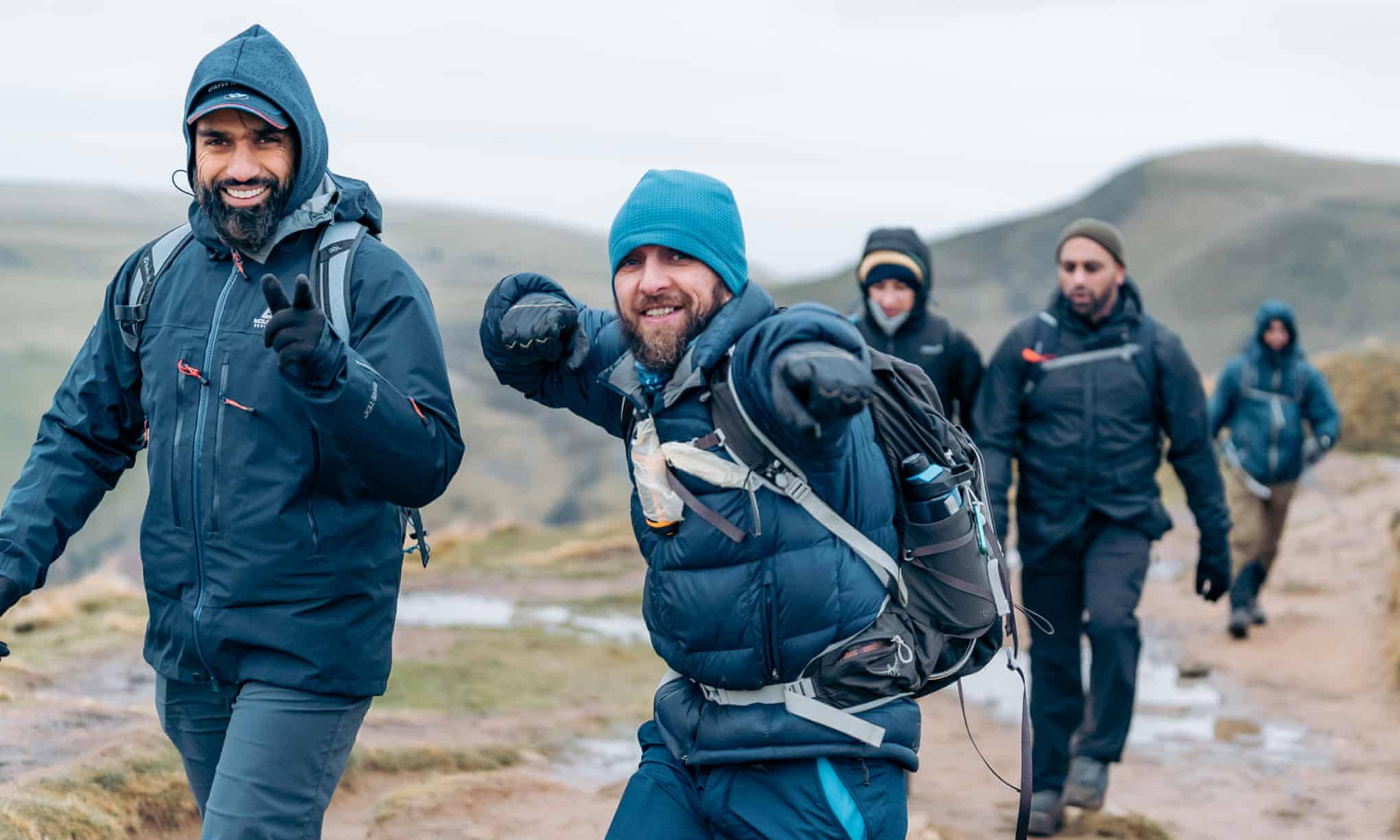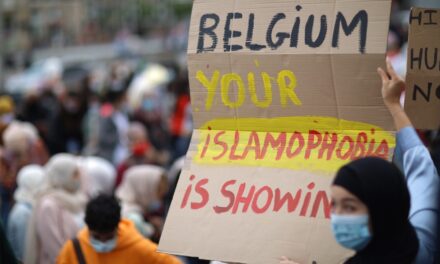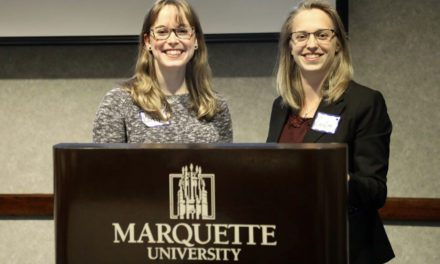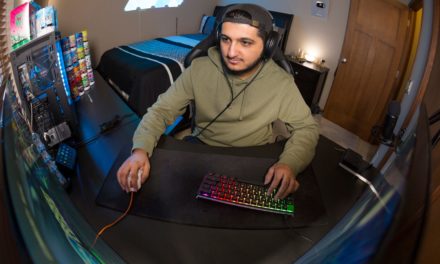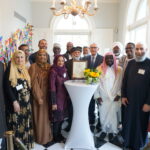The Muslim Hiking group on their Christmas day walk of Mam Tor in Derbyshire Photograph: PR
The Muslim Hiking group received racist comments when they posted pictures of their Christmas day walk in the Peak District. And that makes their leader Haroon Mota even more determined to ensure the great outdoors is a diverse and inclusive place.
“I was coming down Mount Snowdon and in the far distance I thought I could see brown people, and I thought my eyes were kidding me. Then, as I descended and got closer, I realized they were women in hijabs. I was like ‘wow Muslim women on the mountain’, like ‘am I dreaming?’” Haroon Mota, the founder of Muslim Hikers, is remembering a walk he did around 15 years ago and, if you look at the statistics, his shock at seeing members of his own community out on the trails makes sense. Only 1% of national park visitors come from black, Asian and minority ethnic (BAME) backgrounds.
A 2021 report by the countryside charity CPRE reported data showing ethnic minorities have, on average, 11 times less access to green space than their white counterparts, and that only 20% of BAME children who visit natural environments go to the countryside, compared with 40% of white children.
The reasons for the racial imbalance outdoors is complicated, and Mota has his own opinions on what the major barriers are, but a diversity review commissioned by the Department for Environment, Food and Rural Affairs (Defra) highlighted that despite people from ethnic minority backgrounds valuing the natural environment and pace of life in the countryside, they felt excluded and hyper-visible in what they see as an “exclusively English environment.”
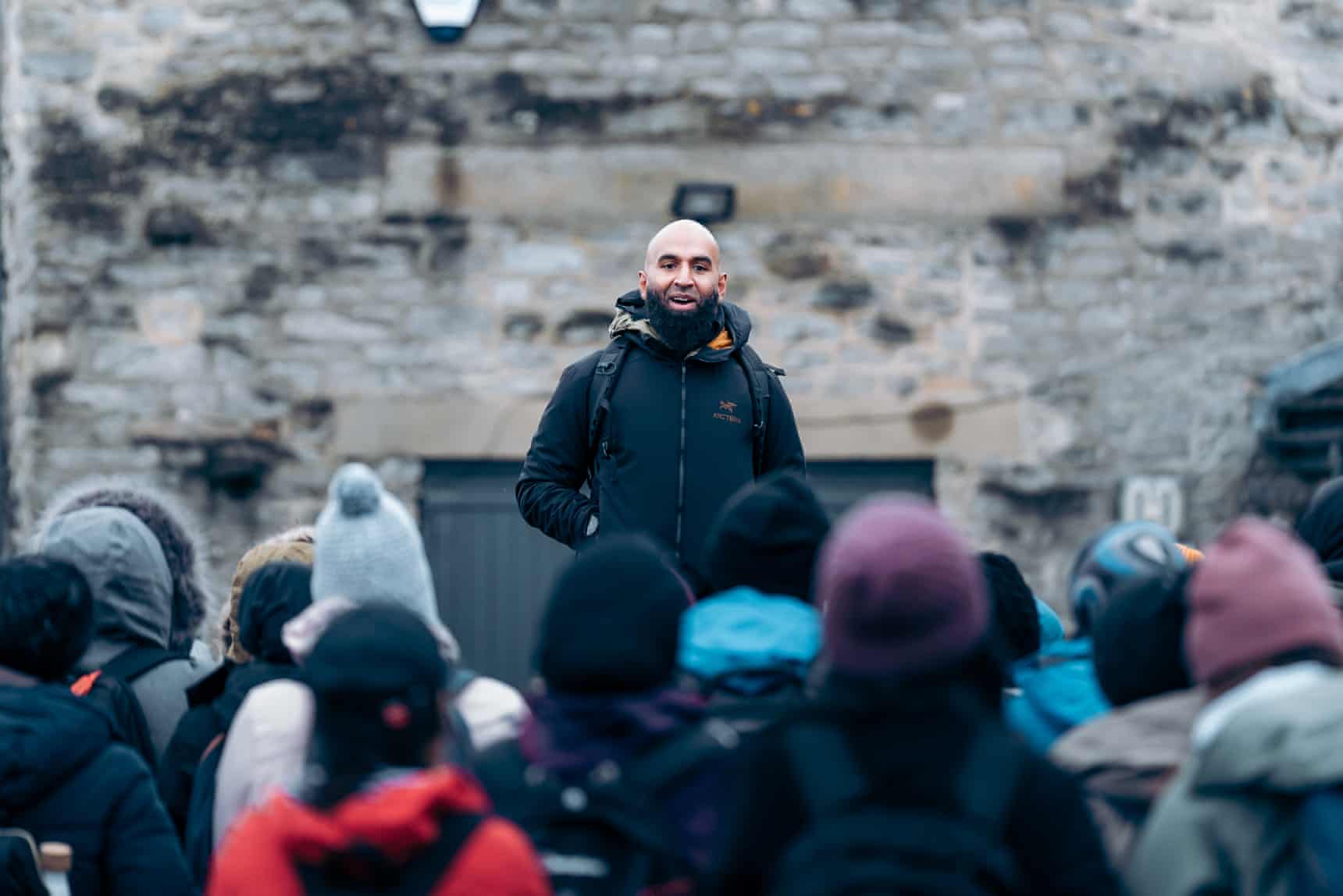
Muslim Hikers is a community group set up by Mota to encourage Muslims to get outside, though anyone is welcome. Since launching the group in 2020, he’s received criticism from trolls for being “exclusionary” and “creating divisions”. Mota brushes those comments off, confident in his values and purpose. “It is what it says on the tin. There is a very clear under-representation and to overcome that, you’ve got to cater for that community. Everybody’s welcome. But our focus is to try and help the Muslim community and I think there’s nothing wrong with that.”
The group’s most recent walk was on Christmas day. One hundred walkers came from around the UK to hike up Mam Tor in the Peak District. After the hike, some of them excitedly shared photos of the trip to the Derbyshire and Peak District Walks Facebook group. It wasn’t long until some members of the group left “vile, racist comments”, says Mota.
“It’s like the migration of the wildebeests in the Serengeti, they just keep coming,” one white woman wrote underneath the images. While another said: “And I bet not 1 of the 100s help to repair the paths when they become damaged …absolute disgrace.”
“When I started climbing mountains, I automatically became the ‘Muslim mountain man.” –Haroon Mota
Responding to the comments, Mota said: “It was such a shame seeing hateful comments … It’s only a small minority of people who act like this but it sure does provide justification for calls to make the outdoors more diverse and inclusive. It won’t deter us one single bit.”
Mota says he has never experienced racism when he’s been hiking and finds the outdoors “a very welcoming space”, however, he adds that many people within his hiking group have experienced racist remarks, staring and patronizing comments.
The CPRE report echoed these attitudes when looking at the key barriers: “One barrier identified was a perception of rural communities as close-knit, white, privileged, older and more conservative than city people, and resistant to change. The associated feeling with this … is that of being unwelcome.”
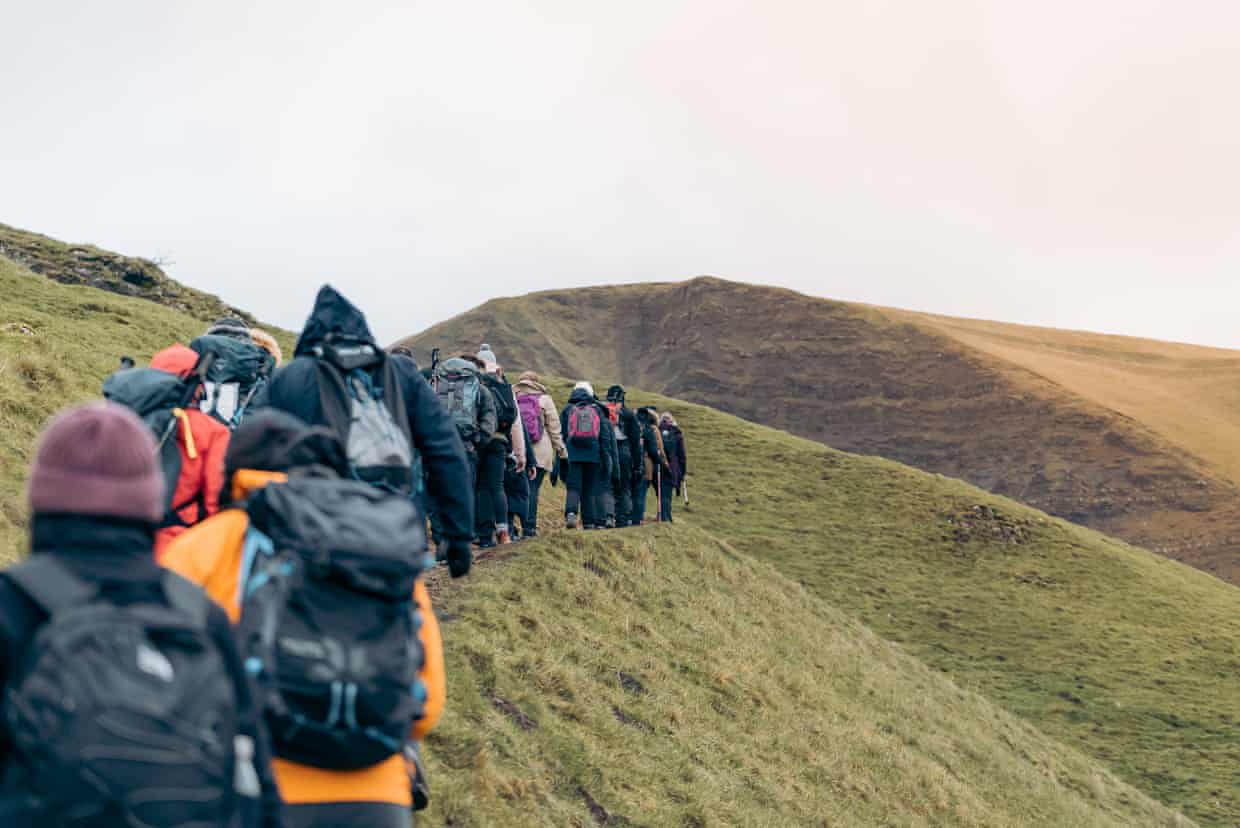
Around 100 people hiked up Mam Tor on Christmas day. Their photos of the walk were later subjected to racist comments on Facebook Photograph: PR
When Mota saw the Muslim women on Snowdon, he excitedly chatted with the group who had travelled from Birmingham for the Islamic Relief charity hike. He exchanged details with the group’s leader and continued his descent. In years of hiking, this was the first time he’d seen brown people out on the hills. “I thought, our people just don’t go outside … I want to do something to try and maybe inspire and empower Muslim communities to get involved.”
Mota, who was the European kickboxing champion at 17, has a long history in sport and fitness. “It’s in my DNA,” he says. In his final year at Coventry University studying sport and exercise science, Mota began volunteering for Islamic Relief and his first charity hike was to Everest base camp where he raised £10,000. His passion and flair for fundraising quickly became apparent. “For me, charity is a huge part of my faith,” he says. He has volunteered as the leader on many of Islamic Relief’s charity hikes over the following years, including one to Peru.
Now Mota works for the Muslim charity Penny Appeal, arranging and leading charity treks around the world. Three years ago he took 18 British Muslim women to hike to Everest base camp. Shortly afterwards he ran the Berlin Marathon, led a group on a hike to Peru’s Machu Picchu, and another to climb Mount Kilimanjaro. He had many more plans in the pipeline but then Covid struck.
“I thought, our people just don’t go outside … I want to inspire and empower Muslim communities to get involved.”
With a fundraising pledge to run four of the world’s six major marathons scuppered by lockdown, he chose to run the length of six marathons (260km) in his local area of Coventry instead. Not only did he run 10k a day, but he did it while fasting with no food or drink for 18 hours of the day during Ramadan. He raised over £50,000 for Penny Appeal which helps people in poverty around the world.
“I ran voluntarily, but refugees are fleeing war and extreme poverty every day and I ran for them,” Mota explains.
After seeing his inspirational resolve, Canadian outdoor brand Arc’teryx asked him to become an ambassador. With the backing of the brand, Mota’s first instinct was to try to invest in his own community and so in 2020, Muslim Hikers was born.
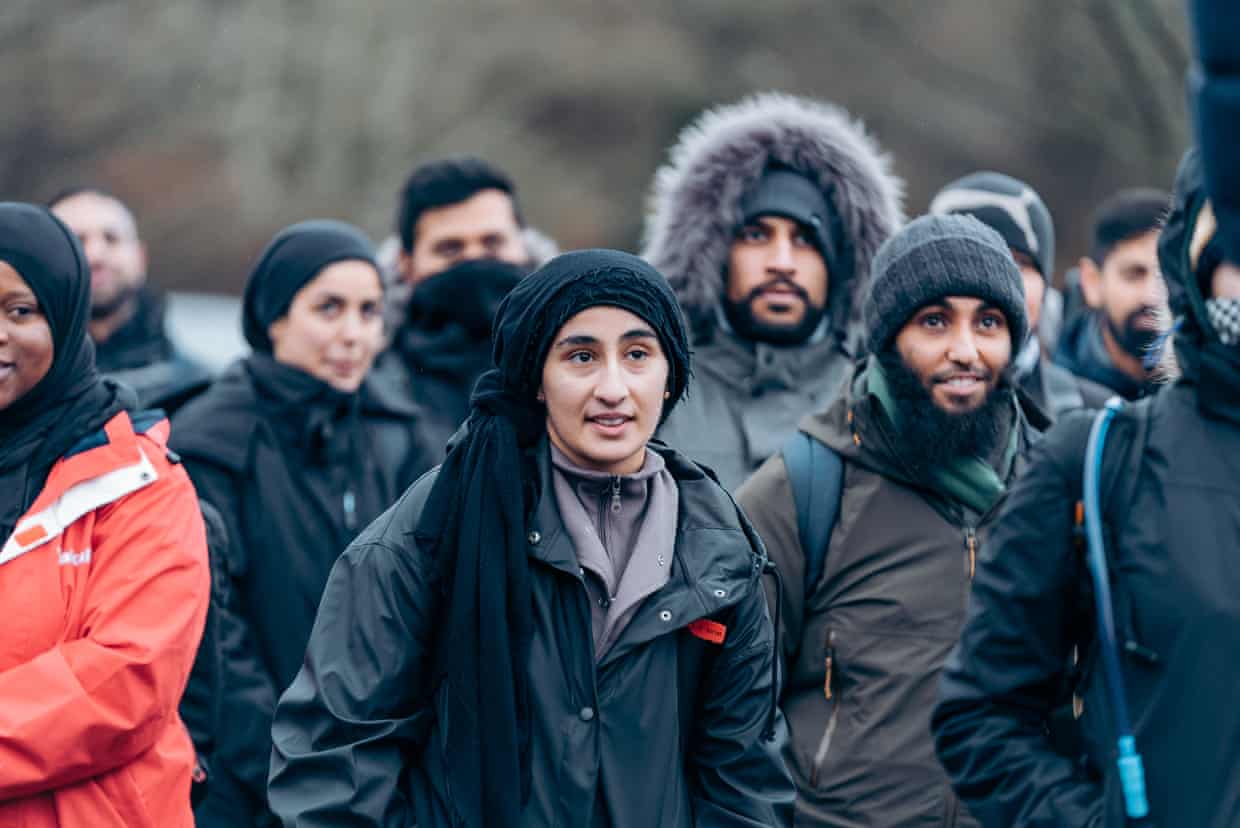
The Muslim Hiking group now has 9,000 followers and many participants say their events have been the best thing they have ever done Photograph: PR
Now at nearly 9,000 followers, the group has done three official hikes and is planning more, potentially abroad. Many participants have said the events have been the best thing they’ve ever done, creating friendships for life and a sense of “safety in numbers” in the British outdoors.
Muslim Hikers’ second event, called High Chai, was similarly successful selling out in two hours – the group hiked through the Peak District and some of them stopped for afternoon tea at the only independent halal tea room in the area- Millies Tea Rooms, Chocolatier and Bed & Breakfast in Hayfield.
A big factor for wanting to get his community outdoors is for health reasons, Mota says. “It’s South Asian communities that suffer the greatest sort of health inequalities. We’re the ones that are dying of diabetes, heart disease and obesity. And then it’s not a coincidence that our physical activity levels are also the lowest – it’s so important for us to encourage our communities to be more healthy.”
Mota’s hopes for the future are firmly rooted in community and creating a cultural shift. “We want to help other grassroots initiatives build infrastructure, so we can do more and create long, lasting, sustainable change.” He is already working with national parks to help them increase the diversity of visitors.
“When I started running marathons, I automatically became the ‘Muslim marathon man’. When I started climbing mountains, I automatically became the ‘Muslim mountain man’,” he says. Mota wants to change the underrepresentation so that Muslim people doing physical activities becomes the new norm.
